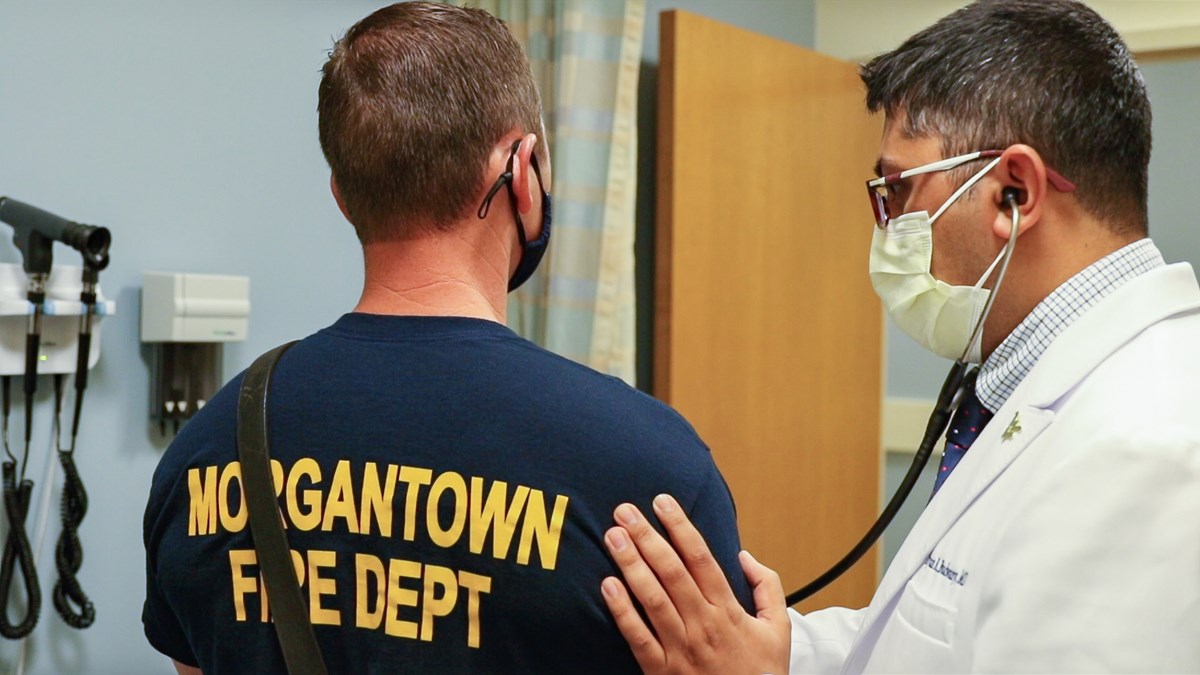Ryan Budwany

I believe the care that we provide to patients needs to be tied into long-term solutions, and one way we can do that is through the lens of occupational medicine.
After earning a medical degree, Master of Public Health and Master of Business Administration, Ryan Budwany started a residency program in anesthesiology. However, he realized early on that the narrow focus of that specialty didn’t align with his long-term professional and personal goals. With the support of program faculty and diverse opportunities available, his unique background and interest in healthcare leadership and advocacy have turned out to be the perfect fit for WVU’s Occupational Medicine Residency Program.
How did your experience as an anesthesiology resident reframe reshape your view of patient care?
Prior to starting my occupational medicine residency, I was an anesthesia resident. My day-to-day encounters with patients left me with more questions than could be answered in the OR. I believe the care that we provide to patients needs to be tied into long-term solutions, and one way we can do that is through the lens of occupational medicine.
When did you know that you wanted to complete your residency in occupational medicine?
Immediately after graduating from undergrad, I got an MPH, and that really changed my perspective on health care, as well as on patient and healthcare system interactions and the responsibilities of society and community to help achieve optimal health. So, coming into residency and even into medical school, I was unique compared to my cohort. My anesthesia residency was really a wake-up call for me because my entire adulthood and medical training up until then was trying to achieve long-term quality-based solutions for patients and not immediate short-term measures. I found that my training did not align with my long-term goals and my long-term professional outlook. As a result, I began to think about what other opportunities are available and decided to make that transition to occupational medicine.
How would you define occupational medicine?
I think the beauty of occupational medicine compared to the diverse scope of specialties out there is that occupational medicine is extremely broad. It can be care at the bedside, like in a primary care setting or an advanced care setting in some situations. It can be an interventional setting as well, such as sports and musculoskeletal medicine. And it can also be healthcare leadership and advocacy.
Why were you interested in studying at WVU?
For me, this program seemed incredible. The main reasons: the open-door policy and nature of the program director and the program manager and all the faculty. Not only were they incredibly welcoming but they were focused on my interests and helping me succeed. They will work with you to help establish the curriculum that you want so that you're able to focus in on your long-term goals.
Dr. Martin is incredible and extremely focused on each resident’s success. He’s always willing to listen to all the ideas that I have and helping me to achieve them. Dr. Allen has been an incredible mentor and she's always there to assist you or to help you better understand something or to help you improve your skill.
Another thing that's really unique about this program is that it's quite diverse in terms of the experience you get. Not only do you get incredible clinical experience but you also get incredible opportunities to work in healthcare research or in healthcare policy. We have NIOSH right down the road from WVU, and that provides an incredible experience that's built into our residency. And there are ample elective opportunities available, from corporate medicine to aerospace medicine to working at the FDA or OSHA, all of these opportunities are available.
What do you find rewarding about working in this field?
The thing that's most rewarding about working in this field is that you help patients restore purpose. A lot of times in a person's life, their purpose is driven by what contribution they're making. I see myself as a physician that helps fulfill that purpose. What that means to me is that if a person is injured and they're no longer able to do the things they enjoy, then that puts a great limitation on their life.
The skillsets I'm learning are going to not only help restore and improve function but also help restore purpose. That's why I find what I'm doing to be extremely rewarding.
What is your advice to students who are in medical school and might not know what area that they want to specialize in?
Early in medical school and as you're trying to transition into residency, keep your options open and consider all aspects of healthcare. One of the things that people don't actually think about is the healthcare leadership and advocacy side of it. I always wondered if there was a residency dedicated to that and I was never aware of it until early in my training while I was already doing a residency in a different specialty. Occupational medicine has allowed me to see an entirely different scope of medicine.